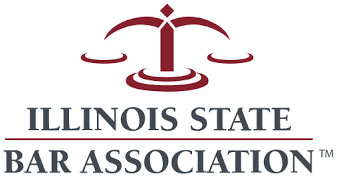DuPage County Divorce Litigation Attorney

Lawyer for High-Conflict and Contested Divorce Trials in Wheaton and Warrenville
While some couples are able to divorce amicably and cooperatively, in many cases, the arguments that led a couple to pursue a divorce in the first place will carry over into the divorce process. This may result in persistent disagreements, intractable differences of opinion, and even destructive conflict that can only be resolved through the court's intervention.
When your divorce is likely to go to trial, you need an attorney with strong litigation experience to represent you and help you protect your interests. Attorney Jessica Sendek understands the challenges of a divorce trial, and she has represented clients in divorce and family law litigation since 2007. She will give you the personal attention and care that you deserve throughout this difficult process and work diligently to help you achieve the best possible outcome.
Common Issues in Illinois Divorce Litigation
In recent years, it has become more common for couples to pursue the option of an uncontested divorce, in which they work toward a resolution through negotiations and other cooperative methods. However, depending on the circumstances of your relationship with your spouse, this may not be realistic, and it can even be disadvantageous to you. Certain issues are typically better resolved through litigation so that the court can issue a decision after thoroughly reviewing all of the facts of the case.
Issues that often make the court's involvement necessary include:
- Dishonesty regarding finances, including hiding or dissipating marital assets
- Conflict over property division, high-value assets, and spousal support
- Differing priorities regarding parental responsibilities and parenting time
- Domestic violence or abuse between spouses or toward the children
- Poor communication, lack of trust, and unhealthy conflict management styles
The Divorce Litigation Process
If you decide to resolve your divorce through a trial, you should prepare for a lengthy, contested process and ensure that you have quality individual legal representation to protect your interests. The first step in the process is filing for divorce through your county court and serving your spouse with the copy of the filing, or responding to your spouse's filing if he or she files first.
After filing, the judge for your case will often open a discovery period, during which you and your attorney can request information and evidence from your spouse. The discovery period will be monitored by the court, and it is intended to allow the parties to exchange a full and complete disclosure of the other spouse's income, assets, and liabilities. The discovery period may involve interrogatories, meaning questions formally submitted to the other party; depositions that require the parties or other witnesses to testify under oath before the trial; and requests or subpoenas to obtain certain documents from the parties or other witnesses. Your attorney can guide you through this process to help you understand your responsibilities and obtain information to inform our trial strategy.
As the trial date approaches, each party will be asked to file a disclosure with the court outlining the arguments and evidence to be presented and the witnesses to be called to testify at trial. Typically, the court will also conduct a pretrial conference with the attorneys to clarify the issues to be resolved and determine whether any of them can be settled out of court.
At the trial, each party will have the opportunity to make an opening statement and present evidence and testimony, with the filing party typically presenting their evidence first. Relevant evidence may include financial, medical, and criminal records, as well as other documents, photographs, and other forms of evidence that help to support each party's claims. Testimony may come from the spouses themselves, as well as financial experts, child representatives, and family members, among others.
After reviewing all of the information presented in court, the judge will render a decision on all outstanding issues in the form of a legally binding judgment that dissolves the marriage and outlines each party's ongoing responsibilities and obligations. However, if you are dissatisfied with the outcome because you believe that any of the decisions were made in error, your attorney may be able to help you pursue an appeal.
Contact a Wheaton, IL Divorce Trial Lawyer
At Hensley Sendek Law, we understand that the time, costs, and stress of a divorce trial can be hard to handle, and we strive to make our services as cost-efficient as possible and provide accessible support throughout the process. For a free consultation on your case, contact us today at 630-358-9029. We represent DuPage County clients in Wheaton, West Chicago, Warrenville, Winfield, Lombard, Naperville, Glen Ellyn, and Lisle, as well as clients in the surrounding areas in Will County, Kane County, and Cook County.
















